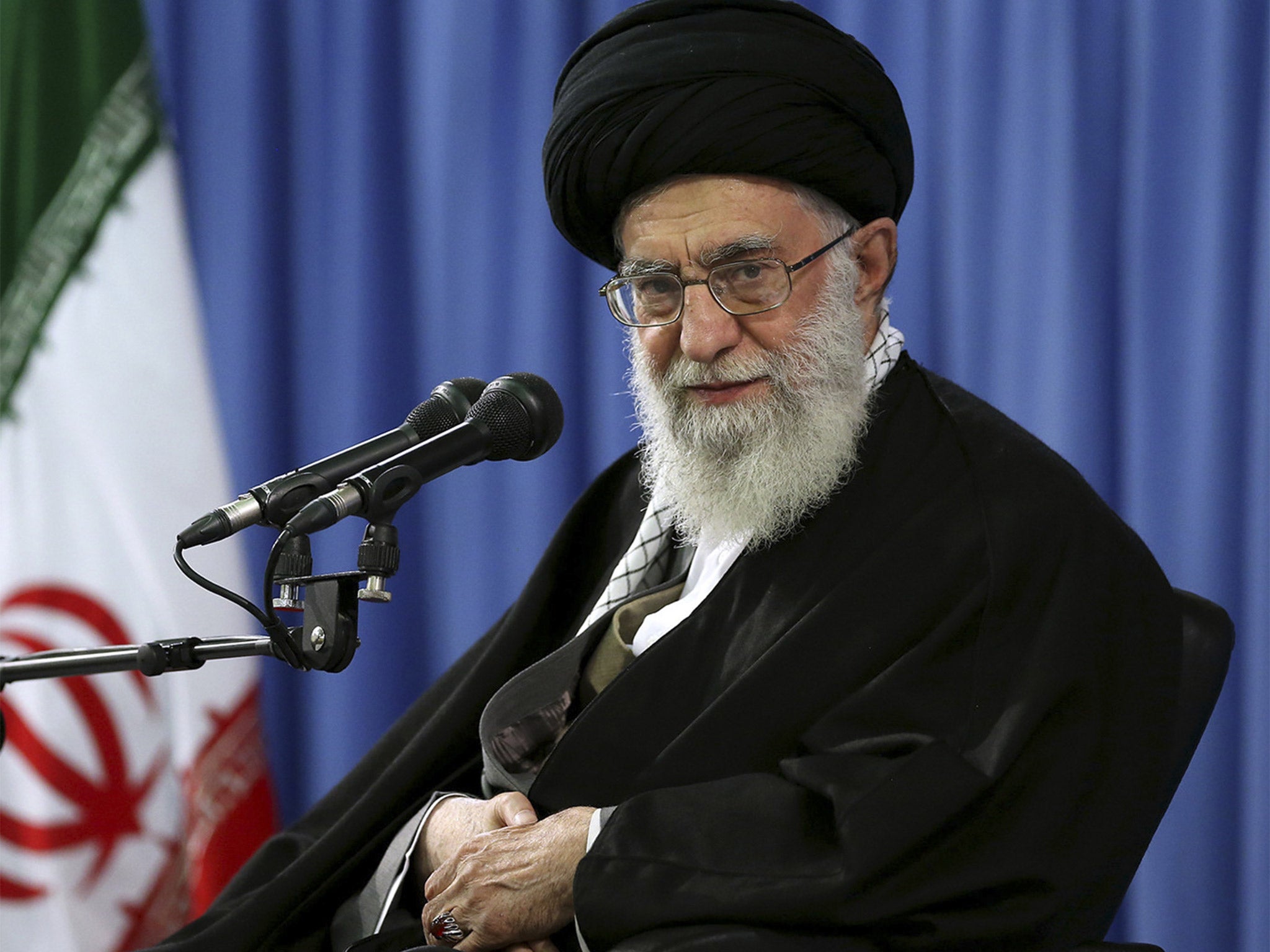Iran nuclear deal: Ayatollah Ali Khamenei rejects long-term freeze on nuclear research and demands lifting of sanctions
Hardening of position threatens chances of reaching a potentially groundbreaking agreement

Your support helps us to tell the story
From reproductive rights to climate change to Big Tech, The Independent is on the ground when the story is developing. Whether it's investigating the financials of Elon Musk's pro-Trump PAC or producing our latest documentary, 'The A Word', which shines a light on the American women fighting for reproductive rights, we know how important it is to parse out the facts from the messaging.
At such a critical moment in US history, we need reporters on the ground. Your donation allows us to keep sending journalists to speak to both sides of the story.
The Independent is trusted by Americans across the entire political spectrum. And unlike many other quality news outlets, we choose not to lock Americans out of our reporting and analysis with paywalls. We believe quality journalism should be available to everyone, paid for by those who can afford it.
Your support makes all the difference.Iran’s stance on nuclear research has hardened less than a week before the deadline on a proposed deal with world powers.
Supreme leader Ayatollah Ali Khamenei rejected a long-term freeze on nuclear research at the same time as Iran ratified a bill banning access to military sites and scientists.
He also insisted that Iran will only sign a deal if international sanctions are lifted first, which could further complicate the negotiations. The ratified bill calls for all sanctions to be lifted on the first day of implementation.
The Ayatollah has backed his negotiators amid criticism from hard-liners, but his latest remarks may narrow their room to manoeuvre ahead of a self-imposed 30 June deadline for a potentially groundbreaking deal with world powers that would curb Iran’s nuclear activities in exchange for lifting sanctions.
Iran’s constitutional watchdog, known as the Guardian Council, ratified legislation banning access to military sites and scientists, making it law, according to state television.
The bill would still allow for international inspections of Iranian nuclear sites within the framework of the nuclear non-proliferation treaty.
The US – which is negotiating the deal with Britain, France, Russia, China and Germany – has said the sanctions would be gradually lifted as inspectors verify Iran’s compliance with the deal.
Speaking in comments broadcast on Iranian state television, Ayatollah Khamenei said demands that Iran halt the research and development portion of its nuclear programme constituted “excessive coercion.”
“We don’t accept 10-year restriction. We have told the negotiating team how many specific years of restrictions are acceptable,” he said. “Research and development must continue during the years of restrictions.”
He said that waiting for the UN’s International Atomic Energy Agency to verify Tehran’s co-operation would take too long. The Americans’ “goal is to uproot and destroy the country’s nuclear industry,” he said.
France’s Foreign Minister, Laurent Fabius, alluded to the Ayatollah’s comments, saying that France “wants the deal to be robust” but that “a certain number of statements do not seem to go in that direction”.
He added that his country “wants a solid accord, but at the same time must stress the firmness of its positions”.
AP
Join our commenting forum
Join thought-provoking conversations, follow other Independent readers and see their replies
Comments